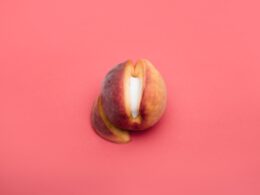An occasional vaginal itch is totally normal, but if you’re getting itchy down there consistently, see your doctor. A sudden itch can be a sign of something serious, like a yeast infection or BV (bacterial vaginosis).
Itching can also indicate that you have an STI, such as trichomoniasis. Fortunately, home remedies can help.
Hormonal Changes
Itching down there is pretty normal and a sign that your body’s natural bacteria are working as they should. But itching can get a little more severe around the time of your period and it could be caused by hormone changes or infection. If your itchiness is accompanied by pain, burning or redness, it’s best to see a doctor for treatment or advice.
If you’re feeling itchy before your period, the most likely culprit is a yeast or bacterial infection (BV). These infections are more common during periods and are usually the result of changes to the vaginal pH that can foster the growth of these pesky organisms. Your doctor can take a swab to test for these types of infections and prescribe medicine to help clear it up.
Other things that can trigger vulvar itching include wearing a tampon too long and using scented products that can mess with your hoo haw’s natural pH. Also, remember to not douche during your period, as this can wash away the good bacteria and allow the bad ones to grow faster.
You may find that your itchiness starts during your period or lasts until after it and is then followed by itching and/or burning, which is known as cyclic vulvovaginitis. This is a condition where you’ll have itching at the same time each month due to the hormone changes that happen during your menstrual cycle.
If you have itching that occurs at the same time every month and is not accompanied by other symptoms, like a yeast infection or an STI, then you may have a medical issue. It’s worth chatting to your doctor about it and getting the appropriate treatment, as you don’t want it to become an ulcer or more serious.
Yeast Infections
The genital area usually has the right balance of bacteria, and if something causes those bacteria to go out of whack, it can lead to itching. That’s especially true if you have a yeast infection, which is typically accompanied by itching (in the vagina and externally along the vulva) and a thick white discharge. If you think your itching is caused by a yeast infection, talk to your doctor about antifungal medications.
Yeast infections are more common than you might think: In fact, 75% of women will get one at some point in their lives. The good news is that most are easy to treat, thanks to over-the-counter antifungal meds like Fluconazole.
In some cases, itching can be a sign of bacterial vaginosis, a more serious infection that occurs when the balance of “good” and “bad” bacteria is thrown out of whack. Symptoms include pain during sex, itching in the vulva and labia, and a sticky, smelly discharge. If you’re experiencing this symptom, it’s a good idea to see your doctor for treatment, which will likely involve oral and topical antibiotics.
Other irritants that can cause itching in the vagina include scented products, soaps and douches, tight clothing, and tampons. Switching to tampon alternatives and unscented period products, taking a baking soda sitz bath, and showering gently with water instead of soap can help reduce itching. And don’t forget to wear loose cotton underwear so your vulva can breathe! If you’re still experiencing itching, talk to your doctor; they might recommend an exam of the vulva or other tests, such as blood work or an ultrasound. Once the irritant is treated or removed, itching should stop. You can also try a natural itchy vagina remedy to soothe your skin, such as an oatmeal paste or a chamomile tea compress.
Allergies
Just because your vulva is a sensitive and porous area doesn’t mean it can’t suffer from allergies. It’s a little like your throat when it comes to allergies; you can have an allergic reaction in the same place (and sometimes at the same time) that you’ll experience on other parts of your body. That’s why you might see itching in the genital area along with other symptoms of skin conditions such as eczema or psoriasis.
Yeast infections can also cause itching, and this is where the term “yeast infection” gets its name. Yeast is a naturally occurring fungus that usually doesn’t cause problems, but when an overgrowth of yeast develops, it causes symptoms such as itching, burning and thick whitish discharge that may or may not smell like sourdough bread. Yeast infections can be caused by a variety of things, including pregnancy, stress, uncontrolled diabetes, and hormonal changes.
The good news is that yeast infections are treatable and often respond well to over-the-counter medication, such as an antifungal cream or oral antifungal medications. For women with chronic or recurring yeast infections, however, treatment can be more involved, requiring both topical and oral medications to manage the infection and relieve itching.
It’s important to understand that vaginal itching is normal, but that doesn’t mean it’s something you shouldn’t take seriously. If you have severe itching that’s interfering with your daily activities, it’s a good idea to make an appointment with a healthcare professional to determine what might be causing it. It might even be a sign of a more serious problem such as an STI or vulvar cancer. And remember to never self-diagnose — this can only lead to irritation and delay a proper diagnosis. If you’re ready to find a doctor, browse doctors in your area using the Healthline FindCare tool.









